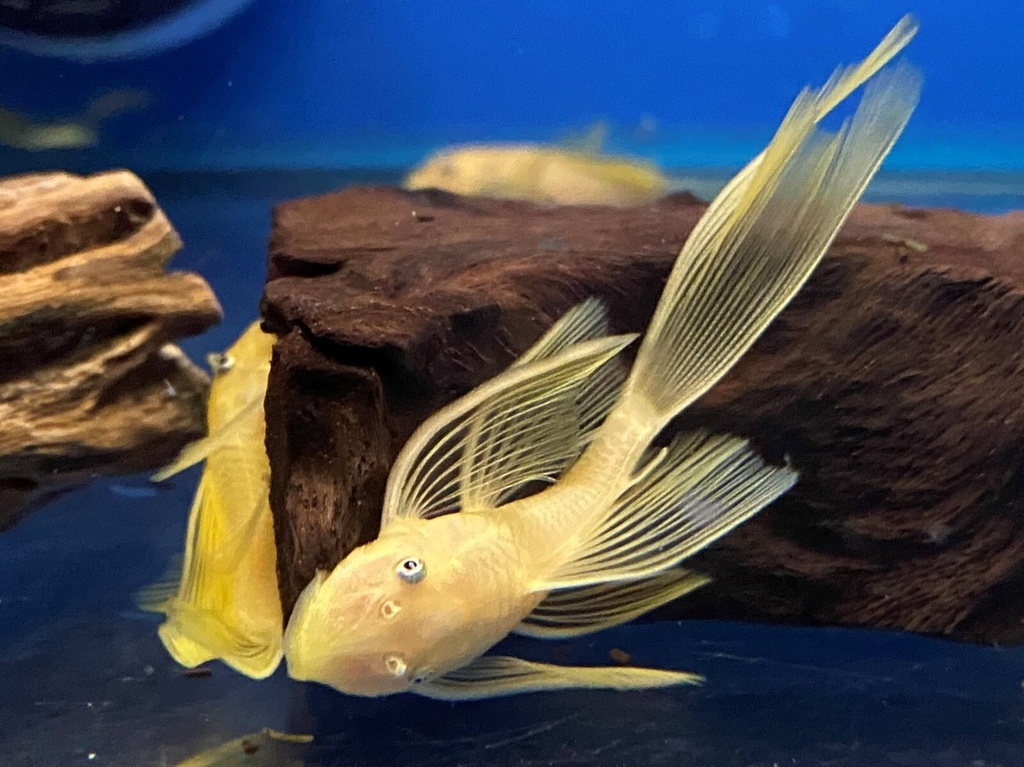Lemon Yellow Longfin BN Pleco
Scientific Name: Ancistrus sp. ("Lemon Yellow" Longfin strain)
Common Names: Lemon Yellow Longfin Bristlenose Pleco, Lemon Longfin Bushynose Pleco, Yellow Longfin Plecostomus
Family: Loricariidae
Origin: South America (Amazon River basin, captive-bred strain; wild Ancistrus found in rivers and tributaries)
Size: 4–5.9 inches (10–15 cm); longfin variants often slightly smaller
Lifespan: 5–12 years with proper care
Behavior: Peaceful but males may be territorial with other male plecos, especially during breeding. Thrives alone or in small groups with one male and multiple females to reduce aggression. Nocturnal but may become active during the day in a comfortable environment.
Temperature: 72–86°F (22–30°C); optimal range 74–80°F (23–27°C).
pH: 6.5–7.5 (neutral to slightly acidic).
Tank Requirements: Minimum 30 gallons (113 liters) for one fish; 40 gallons or more for a group. Use a fine sand or smooth gravel substrate to protect their delicate undersides. Include driftwood (required for digestion), rocks, and caves (e.g., ceramic or PVC pipes) for hiding and spawning. Robust plants (e.g., Anubias, Java Fern) are safe, but avoid soft-leaved plants, as they may be nibbled. Moderate lighting encourages algae growth for grazing. A tight-fitting lid prevents jumping.
Compatible Tankmates: Suitable for community tanks with peaceful fish like tetras, rasboras, guppies, or small cichlids (e.g., Apistogramma). Avoid aggressive fish (e.g., large cichlids like Oscars) or fin-nippers that may stress them. Safe with larger shrimp (e.g., Amano Shrimp), though shrimplets may be eaten. Multiple male plecos require ample hiding spots to reduce territorial disputes.
